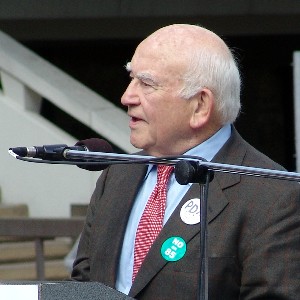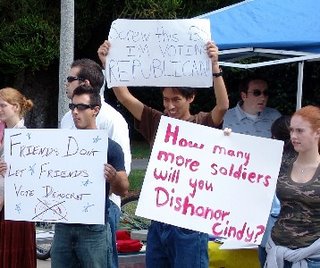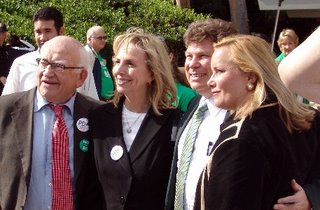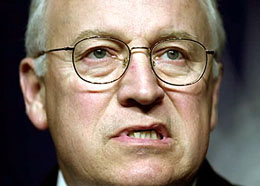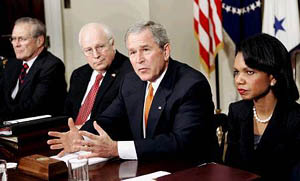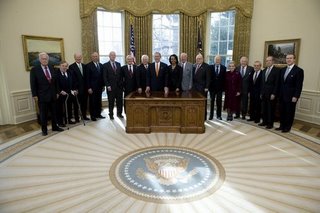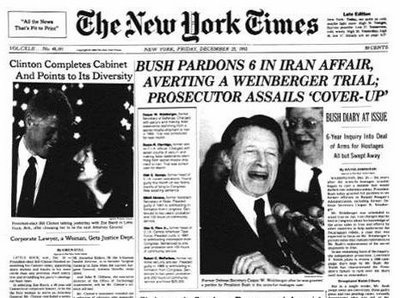
 A former neighbor called the other day to try to sell me a car. I ran into him a year ago at a local dealership after many years and he had me in his rolodex for sales calls. Business aside, he asked after so many years what I was up to, and I mentioned this blog. Since Orange County is the notorious quintessential right-wing political district of the entire nation, if not proto-racist as well, based on comments, to which I am unhappily privy, of the parents of my children's friends at numerous communal birthday bashes we attend--when a remark is made that might ordinarily be offensive, the assumption is that it's OK to say whatever because the audience will be in agreement.
A former neighbor called the other day to try to sell me a car. I ran into him a year ago at a local dealership after many years and he had me in his rolodex for sales calls. Business aside, he asked after so many years what I was up to, and I mentioned this blog. Since Orange County is the notorious quintessential right-wing political district of the entire nation, if not proto-racist as well, based on comments, to which I am unhappily privy, of the parents of my children's friends at numerous communal birthday bashes we attend--when a remark is made that might ordinarily be offensive, the assumption is that it's OK to say whatever because the audience will be in agreement.
So when told my former neighbor that this blog tended to stress tolerance and leftist politics, he came on with an extended tirade including such Ann Coulter retreads as "the left only tells lies," "Bush is the only one standing up in our defense," among others. He then mentioned that he voted once for a Democratic presidential candidate--Carter, to which I tried to reply in a friendly way that I once voted for a Republican--Reagan--out of my juvenile fear of Carter's inability to handle a foreign crisis.
This led to his gushing about the greatest president of all time, Ronald Reagan, and my growing wonder as to why I had become engaged in one of the two conversational no-no's, politics, the other of course being religion. I was about to say that Reagan was a criminal based on Iran-Contra, but instead I told him I'd call back when the lease was up on my car.
That conversation bothered me for a while afterwards, because I thought about this seemingly nice fellow who was spouting party-line propaganda and Orwellian phrases that caused more knee-jerk agreement than real thinking. "Fight them over there or we'll be fighting them here," kind of stuff, which is really a meaningless fear-mongering rant. I thought about so many people who would sit in abject agreement over everything this guy said, especially about the practical deification of the "Great Communicator, " Reagan.
Reagan was indeed a criminal. So were several of his closest aides and advisers, including former President George H.W. Bush. With the upcoming election threatening to install a democratic majority in one if not both of the federal legislative bodies, the ghost of Iran-Contra re-emerges from the coincidence of the twentieth anniversary of another time congress was re-won over by the democrats. This is the main issue of an illuminating op-ed piece in today's Los Angeles Times by Greg Grandin:
It was 20 years ago this Nov. 3 the day after the Democrats regained control of the Senate in 1986 that a Lebanese magazine revealed that the Reagan administration sold missiles to Iran. The sale (brokered by a National Security Council staffer named Oliver North) violated a U.S. arms embargo against Iran and contradicted President Reagan's personal pledge never to deal with governments that sponsored terrorism. Soon after, it was revealed that profits from the missile sale went to the Nicaraguan Contras, breaking yet another law, this one banning military aid to the anti-Sandinista guerrillas.
I read this editorial while watching
Clinton give a speech at Georgetown University in which he described the Bush Administration as "ideologues" who were set in their own reality unable to hear anything contrary, and those of us who are in the world reality which includes dialogue and compromise. Listening to Clinton is always a lesson in charisma and communication. He constructs well-thought-out concepts with a clarity and ease of a friend looking you in the eye over lunch. And his topic was about negotiation, not rigid doctrine, so it would be hard to find fault in his premise.
Then I looked down at the op-ed story, and the description was of another rivetting and commanding speaker--Oliver North:
How did Democrats fail to inflict serious damage on an administration that sold sophisticated weaponry to a sworn enemy of the United States? How did they also fail to depict Iran-Contra as a sequel to Watergate--that earlier tutorial on the danger of unchecked executive power? One explanation is that their congressional hearings backfired. For months, they amassed evidence of what many observers believed amounted to treason by administration officials, if not Reagan himself.
But then in marched North: the crisp Marine with his hard-rock jaw and chest full of medals.For six days, North fended off the questions of politicians, and many TV viewers viscerally connected with the loyalty and courage he so artfully displayed. "If the commander in chief tells this lieutenant colonel to go stand in the corner and stand on his head," North said, "I will do so."
Olliemania swept the heartland and Hollywood. Even liberal TV producer Norman Lear admitted he couldn't "take [his] eyes off" the colonel.
No doubt North had his appeal, as does Clinton. The problem with propaganda and aphorisms and Orwell is, you have to compare apples with apples, not with oranges. Oliver North as an iconic image in uniform telling of "courage under fire" in so many words before a national TV audience vis a vis congressional hearing, is a message all by itself. Orwell would have to give way to Mcluhan, for whom the medium is indeed, is the message, regardless of its content.
Then there is the studied, if not media-manicured and honed-professional speaker, former President Bill Clinton. Yet at the moment of his speaking, there is no iconic figure or overall propaganda--that is quite clear in his tone. He quotes current writers, references journalists for accuracy, and states the case: that there is the perception of two realities--one, of the empire created by a joint executive and congressional alliance of right-wing neo-conservative ideology--and the other, of historical immediacy, the reality that affects everyone on the planet.
Clinton points to the latest news of a vote by the US against negotiating the issue of weapons in space. Clinton says that this was not a vote on whether to allow weapons in space or not, just a vote on whether or not to start talking about the question. Clinton rightly says the vote, out of 160 nations, was 159 in favor of negotiation, and the one vote against was by the United States:
President Bush has signed a new National Space Policy that rejects future arms-control agreements that might limit U.S. flexibility in space and asserts a right to deny access to space to anyone "hostile to U.S. interests."
A number of nations have pushed for talks to ban space weapons, and the United States has long been one of a handful of nations opposed to the idea. Although it had abstained in the past when proposals to ban space weapons came up in the United Nations, last October the United States voted for the first time against a call for negotiations -- the only "no" against 160 "yes" votes. -- Washington Post
The use of this late-breaking story in Clinton's argument serves to show that Bush's crusade is a daily ongoing mission, to gain executive power and abrogate reasonable accountability to the US public, and therefore the rest of the world. The end is to enrich the fortunes of the elite few who follow and are coddled by this group--in the wider sense, the right-wing cadre in the US, in the more literal and sinister practical sense, it means the quasi-clique moneyed group whose interests are served by the furthering of war-mongering and fear-mongering--for lack of a better name call it the wider "Bush family."
Meantime
Grandin brings us up to the present regarding the Iran-Contra reference:
Just last December, Vice President Dick Cheney pointed to the Republican "minority report" on Iran-Contra written, not coincidentally, by Cheney's current chief of staff, David Addington to justify the White House's insistence on the primacy of the executive branch in matters of national security. At the time, that report, which blamed the scandal on Congress for "legislative hostage-taking," was considered out of the mainstream. Today, it reads like a run-of-the-mill memo from the Justice Department outlining the legal basis for any of the Bush administration's wartime power grabs.
Reagan and Bush should have gone to prison for violating their oath of office and committing treason, and in my neck of the woods this declaration would get at least a laugh, if not a truck off to the funny farm. Bush says he will "stay the course" even if only his wife and his dog stand with him. The stage is set for a two-year hiatus on any new legislation of any meaning getting passed, with a dead-locked congress and a lame-duck president. The empire is only in its early growth stages, there is still time to bring back the republic.
Iran-Contra, then, wasn't just a Watergate-style crime and a coverup. It was, rather, another battle in the neoconservative campaign against Congress and in defense of the imperial presidency. Though Iran-Contra might have been a draw the 11 convicted conspirators won on appeal or were pardoned by George H.W. Bush the backlash has become the establishment.--Grandin
Americans have a voice they haven't begun to muster yet--that voice ended the debacle in Vietnam, it brought reform to government and civil rights. The abuses of power Bush has called for may warp the spirit of the constitution for years to come. And the toll on lost souls through war and other carnage either in the active incursion in Iraq, or in the passive denial of aid to Africa, can never be undone. But history tells us the spirit of the constitution will survive, as it has, and the mistakes of the last six years can be corrected through the power of will, and numbers.







